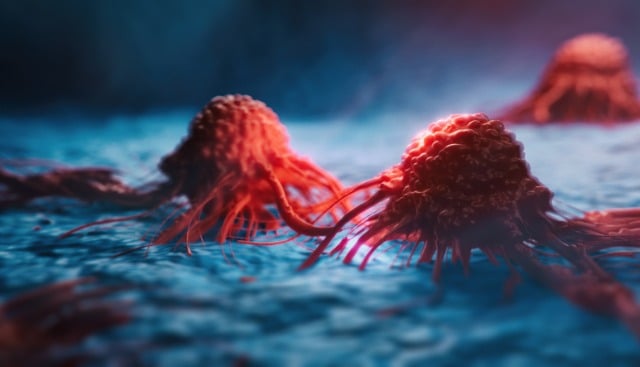
Novel Immunotherapy Trial using Chimeric Antigen Receptor Therapy (CAR T) for Relapsed Epithelial Ovarian Cancer
CAR T therapy is an immunological treatment that uses the body’s own immune system to destroy cancerous cells. Normally, a person’s T cells are responsible for detecting noncancerous "intruders," such as viruses and bacteria. However, by genetically modifying these cells to recognize the unique proteins that are present on the surface of cancer cells, it’s possible to program them to destroy cancerous cells while leaving healthy cells alone.
A team of researchers led by Dr. Jose R. Conejo-Garcia, chair of Moffitt’s Immunology Department, has developed a CAR that introduces Follicle Stimulating Hormone (FSH) into T cells. The new genetically modified CAR T cells seek out and destroy cancer cells expressing an FSH receptor protein found on many ovarian cancer cells.
Dr. Robert M. Wenham, chair of Moffitt’s Department of Gynecologic Oncology, is leading the CAR T clinical trial designed to treat women with relapsed epithelial ovarian cancer. "We had the first patient enrolled in the CAR T therapy who made it through the toxicity period. We're now looking to enroll more patients", said Dr. Wenham. Immunotherapy has been a big breakthrough for some cancers. Being able to translate personalized therapies, like CAR T, for ovarian could help save thousands of patients each year, he added.
Conejo-Garcia and his team plan to expand their CAR technology to other solid tumors in the future, including breast, prostate and pancreatic cancers.
Moffitt Cancer Center is a world leader in providing CAR T therapy in blood cancers and its application in solid tumor trials. We are steadfastly committed to developing new and better strategies for the prevention, screening, diagnosis and treatment of all types of cancer. Along with the many patients who participate, our CAR T clinical trials can potentially benefit countless individuals whose lives will be impacted by ovarian cancer in the future.
If you’d like to refer a patient to Moffitt Cancer Center, complete our online form or contact a physician liaison for assistance. As part of our efforts to shorten referral times as much as possible, online referrals are typically responded to within 24 - 48 hours.
